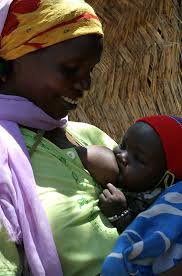Abstract
This review examines the available studies bearing on the relation between infant-feeding mode and infectious illness in the populations of less developed countries. In this review we will address the following key questions: (1) whether the method of infant feeding (breast v other) is associated with differences in rates of mortality, both overall and infectious, and in rates of infectious morbidity in less-developed countries; (2) whether differences exist between breast-feeding and other feeding methods in terms of infection rates for specific pathogens; and (3) whether the evidence is strong enough to suggest that any association is a causal one, ie, that the effect noted is actually caused by breast-feeding rather than other factors associated with rates of illness. The strongest evidence for a protective effect of
breast-feeding in industrialized countries is for gastrointestinal (diarrheal) illness. In this review of studies among populations in developing countries we found the evidence for an important protective effect of breast-feeding against infectious illness to be much stronger. This conclusion was reached despite serious problems in the design of many of the studies reviewed.
Jason JM, Nieburg P, Marks JS
Pediatrics 1984 Oct;74(4 Pt 2):702-27
PMID: 6435089
Pediatrics-1984-Jason-702-27-mortality-infant-feeding